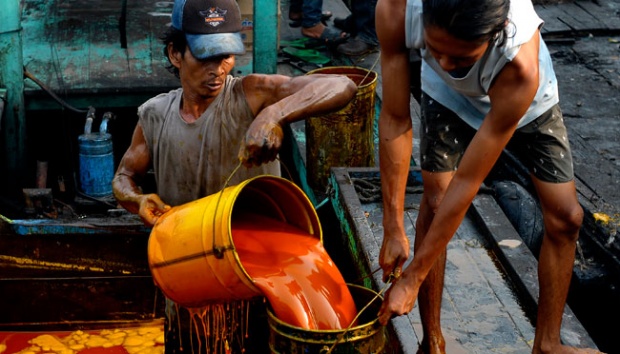India, Indonesia negotiating economic cooperation agreement

Sunday Guardian Live - 25 January 2020
India, Indonesia negotiating economic cooperation agreement
By Kundan Jha
India and Indonesia are set to launch negotiations for a Comprehensive Economic Cooperation Agreement (CECA) to cover economic cooperation while trading in goods, services, and investments. The move will also “balance” the two countries’ trade interests. Sources have confirmed that India and Indonesia will soon intensify efforts to explore ways and means to deepen trade and investment relations. This move comes amidst the standoff with Malaysia, from which India has been buying the bulk of its palm oil but is now shifting its business to Indonesia as a reaction to Malaysian Prime Minister Mahathir Mohamed’s continuous tirade against India.
“The CECA will take further the direction that has already been taken under the ASEAN-India FTA (free trade agreement) and will be a comprehensive agreement, covering economic cooperation, trade in goods and services and investments. The CECA between the two countries would lead to a higher-level of and mutually beneficial economic cooperation,” a senior official of the Ministry of External Affairs (MEA) told The Sunday Guardian.
India’s move on having a CECA with Indonesia has come at a time when the relationship between India, the world’s biggest edible oil buyer, and Malaysia, a key supplier, is on the verge of collapse. India had imported 4.4 million tonnes of palm oil from Malaysia in 2018-19. India and Malaysia had signed the CECA in 2011, building upon the 2009 India-Asean free trade pact.
Incumbent Malaysian Prime Minister Mahathir Mohamad has taken an anti-India stand and criticised the promulgation of the Citizenship Amendment Act (CAA). Following his comments, India has slapped import restrictions by limiting the import of palm oil from Malaysia.
Indonesia is the world’s biggest producer of palm oil, but India imports 30% of its palm oil needs from Malaysia too and the reason behind this is the lower price of the Malaysian variety due to the CECA signed between India and Malaysia, enabling to keep costs low.
According to the MEA official cited earlier, since Prime Minister Narendra Modi’s visit to Indonesia in 2018, both countries have been exploring ways to increase bilateral trade and cooperation and the current standoff with Malaysia will lead to stronger ties between Indonesia and India.
“A feasibility test conducted in the past shows that significant economic complementarities exist between the Indian and Indonesian economies and evolving a bilateral CECA could provide opportunities to tap the immense potential for trade and welfare gains that could be further enhanced by including trade in services and fostering investment cooperation,” said the MEA official.
“For example, Indian pharmaceutical companies face a problem due to the time-consuming process in drug registration in Indonesia. There are certain regulations like those requiring foreign drug registration holders to set up a production facility in Indonesia within two years of registration and an FDI cap of 70% cause difficulties and this can be dealt with only by negotiating the CECA,” the official cited above explained.
India and Indonesia have had historical cultural and economic linkages and the two countries have been working towards the CECA for more than a decade. Two rounds of pre-negotiations have already been held and a feasibility test has also been done to conclude the CECA.
The bilateral FTAs (Free Trade Agreements) are currently seen as a means to open export markets and this has caused much delay in concluding the CECA outside the Free Trade Agreements (FTAs).
Meanwhile, the direction of the Ministry of Commerce and Industry asking edible oil refiners to import crude oil and oilseeds from Indonesia will also lead to greater bilateral trade opportunities for Indonesia and India, sources said.





